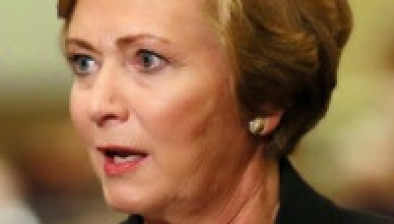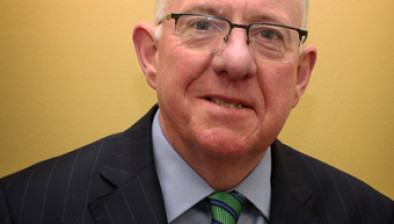New figures show one in five Irish women have been raped

One in five women in Ireland have been raped and more than half of women have experienced some form of sexual violence, according to research by the Central Statistics Office (CSO).
The national statistics body yesterday published the findings of the Sexual Violence Survey (SVS) conducted in 2022 at the behest of the Department of Justice and the government.
It was the first research into the prevalence of sexual violence in Ireland since 2001 and aimed to establish a new baseline against which progress can be measured. Another survey will take place in 2032.
Four in 10 respondents to the survey said they had experienced sexual violence in their lifetime — representing 52 per cent of women and 28 per cent of men.
Three in 10 adults had experienced sexual violence as a child, while one in four had experienced sexual violence as an adult.
Of those who said they were victims of sexual violence, 21 per cent of women had non-consensual sexual intercourse, 23 per cent were victims of attempted sexual intercourse, 43 per cent were victims of sexual touching, 30 per cent reported other sexual contact and 25 per cent were victims of non-sexual contact.
The respective figures for men were five per cent, seven per cent, 17 per cent, 10 per cent and 16 per cent.
Younger people reported higher levels of sexual violence (52 per cent) compared to older people (27 per cent).
Most adults (78 per cent) who experienced sexual violence at least once in their lifetime knew the perpetrator, broadly similar between women (79 per cent) and men (75 per cent) and broadly consistent over age ranges.
About half of adults (47 per cent) who experienced sexual violence in their lifetime told someone about it, with disclosure more likely if the experience was with a non-partner-only (55 per cent) than with a partner-only (16 per cent). Women (53 per cent) were more likely to disclose than men (34 per cent).
Simon Harris, the justice minister, said: “The figures are devastating, including that one in five women have been raped.
“Equally as stark and upsetting is that we know from this study that the vast majority of these victims knew the person that did that this to them, presumably it was someone they had once trusted.
“These statistics underline why we have taken a ‘zero tolerance’ approach in the third national strategy on domestic, sexual and gender-based violence. This is an ambitious five-year programme of reform to achieve a society which does not accept sexual violence or the attitudes which underpin it. That societal change, that cultural shift is key.
“The strategy’s accompanying implementation plan, which runs to the end of this year, sets out 144 detailed actions which are assigned to my department and other agencies and departments across government. A key part of implementation will be the establishment of the new statutory DSGBV agency which will ensure a permanent and dedicated focus on this important area of work.”
Noeline Blackwell, human rights lawyer and CEO of Dublin Rape Crisis Centre (DRCC), said: “We were glad to be able to offer some support to the CSO in carrying out this important survey and finding an appropriate survivor-focused methodology to help identify those impacted by sexual violence, which is often still silenced in our society.
“It has been far too long since the last survey which led to the SAVI report in 2002, commissioned by DRCC and carried out by the Royal College of Surgeons in Ireland (RCSI). This survey sets a new standard for defining sexual violence on an international level.”









